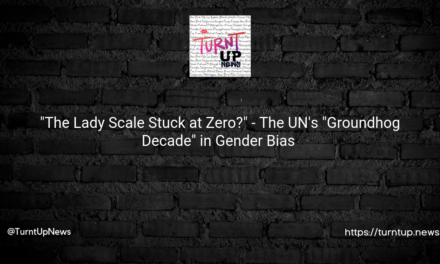🌽 Food Fight! Global Grains Get Gritty as Black Sea Deal Dissolves 🌻
TL;DR: Russia exits a UN-backed grain deal with Ukraine, causing global food prices to rise 1.3% in July. The move has affected commodities like grains and sunflower oil 🌻, increasing the price of vegetable oils by 12%. The broken deal spells uncertainty for global markets and risks exacerbating hunger in some regions. 😱🍞
Disclaimer: This article is intended to provide information about recent developments in the global food market. It does not constitute advice on investments or other financial matters. Readers should seek professional guidance as applicable.
🌍 Global Food Prices Stirring the Pot
Who’s hungry for some international drama at the dinner table? 🍽️ Russia has officially left the grain deal that allowed the safe passage of Ukrainian grain through the Black Sea. What’s that mean for your morning toast and grandma’s famous sunflower oil salad dressing? Let’s break it down.
The United Nations’ Food and Agricultural Organization (FAO) noticed a 1.3% spike in the global Food Price Index in July compared to the previous month. Now, this isn’t a massive jump, but hey, it’s only the second increase in a year of steady declines. 💹
What’s Cooking with the Deal? 🍳
This Black Sea grain deal, renewed three times before Russia said “No more,” has played an essential part in stabilizing global food markets, particularly for countries relying heavily on grain supplies from the region. Russia’s decision has turned the heat up on the prices of grains and sunflower oil. Putin, feeling salty, stated that the pact’s main purpose – to supply grain to needy countries – hadn’t been realized.
Is Putin being a party pooper, or does he have a valid point? 🤔
🌻 Sunflower Oil: The Shiny Star
The Food Price Index’s rebound is due, in part, to a 12% increase in vegetable oil prices, with international sunflower oil prices bouncing more than 15% month-on-month. Why? It’s all connected to the Black Sea region’s uncertainties. Ukraine, the sunflower oil superstar, accounting for 46% of the world’s exports, must be feeling the pressure. 🇺🇦
But wait, there’s more! Concerns over dwindling production of palm oil in southeast Asia and soybean and rapeseed oil in North America are also making waves. 🌊
🍞 The Wheat Beat
Hold your horses, wheat lovers! 🐎 The global wheat price index rose by 1.6% in July, its first monthly increase in nine months. But why does that matter? Russian attacks on Ukrainian port infrastructure have added to the price pinch. Still, don’t fret; wheat prices are down a whopping 46% since hitting an all-time high in February 2022.
😢 The Hunger Games
Now for the sobering bit. The Black Sea initiative was more than just a business deal; it was a lifeline for global food markets. With 80% of East Africa’s grain coming from Russia and Ukraine, over 50 million people across East Africa might face hunger. The broken deal could spell doom for some regions. Is it just politics, or is there a human element that’s been overlooked? 🌾
Final Bites 🍪
The global food market is complex, and the dissolution of the Black Sea grain deal adds a spicy twist to the mix. As prices bounce and political maneuvers play out, we’re left chewing on some critical questions.
What impact will Russia’s decision have on global food security, and how will countries adapt to this change? Are we witnessing a mere ripple or the beginning of a tidal wave that might reshape the world’s food landscape?
And here’s the big question for all you foodies out there: How will this affect the price of your favorite snack? Will your beloved avocado toast become a luxury item? 🥑 Let’s dig in and discuss!





